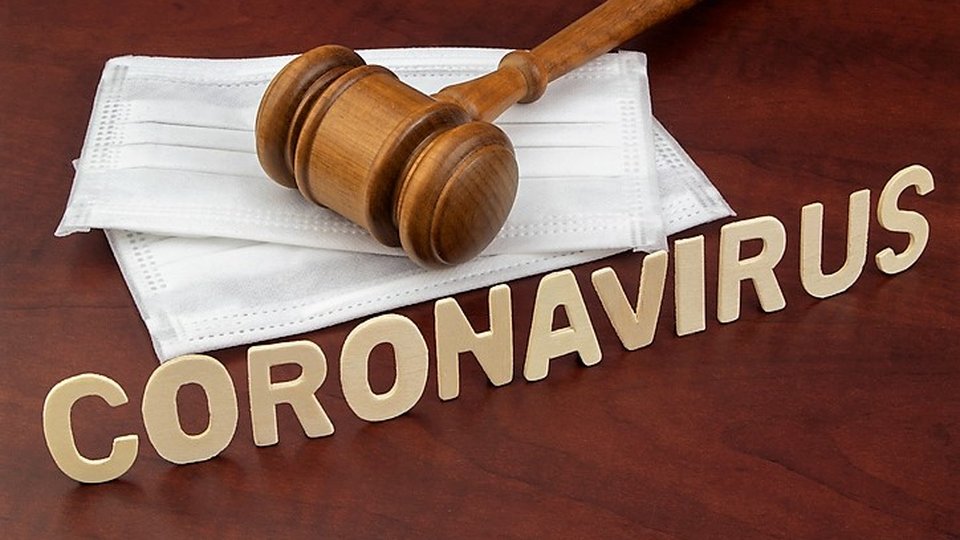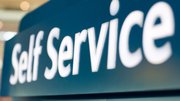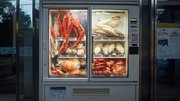Article
Insurance overview: How to protect your business from coronavirus
Having the right business insurance can help convenience services operators cover the cost of business interruptions caused by COVID-19. Legal experts offer an overview.

March 25, 2020 by Elliot Maras — Editor, Kiosk Marketplace & Vending Times
Is your business properly insured to cover losses caused by the coronavirus?
Convenience service operators face challenges on many fronts related to the coronavirus pandemic, and having proper insurance might not be at the top of the list. Trying to protect the health of their own workers, keeping track of customer needs and complying with possible quarantines are just some of the daily considerations they are facing.
Having the right business insurance, however, can help companies cover the cost of business interruptions caused by COVID-19. An insurance overview was presented last week in a webinar on evolving COVID-19 considerations presented by Covington & Burling, a global law firm, sponsored by the National Automatic Merchandising Association.
"Coronavirus coverage may be available under property policies and a variety of other insurance policies," said Ben Lenhart, an attorney at the firm who focuses on insurance.
Relevant insurance policies include business interruption, event cancellation, pollution legal liability, general liability, and directors and officers liability.
Event cancellation insurance
The most obvious is event cancellation insurance, Lenhart said. "If you have scheduled an event, and you need to cancel or postpone the event due to coronavirus, event cancellation insurance, if you have it, should reimburse the amount out of pocket, including extra costs related to refunds, vendor costs, notification costs … as well as the lost revenue resulting from the cancellation," he said.
Property coverage
Less obvious but often more pertinent is property coverage, which covers physical damage to physical property and lost profits or revenue caused by interruption of your business, he said.
Property coverage is most likely to cover the largest COVID-19-related losses, he said. This can include the cost to clean up contaminated factories, buildings or other premises, or contaminated parts, supplies or other materials and make them safe for use. These policies can also cover lost revenue resulting from plant shutdowns or supply chain disruptions.
"We are seeing coronavirus business interruption claims in significant numbers over the last few weeks," he said.
Such an interruption can strike a company's facility, a customer's facility or a supplier's facility, he said, "thus causing supply chain problems to your own business."
These disruptions can arise in a number of ways, such as a quarantine or stay-at-home order from the government, a blockage of ingress or egress to a facility due to presence or risk of virus, or a decision by the company or a supplier or a customer to close a plant on account of the virus.
Critical coverage issues
Two of the most important coverage issues for property damage related to coronavirus, according to Lenhart, are the requirement of "physical damage" and the "contamination" exclusion.
Property policies often require a showing of physical damage in the walls, floors, railings, foodstuffs, supplies, clothing or other surfaces.
"The science in this area is unsettled," he said. "But some reports state that coronavirus can persist on surfaces for many days or even weeks."
"Remember that the physical damage need not be to your own property, but the coverage may also be available if the damage is to property of your suppliers or customers, or even to nearby locations," he said.
Some property policies have a contamination exclusion that excludes coverage for losses arising from certain pollutants or contaminants. Such exclusions do not necessarily apply to the coronavirus-related losses, he said.
Policies containing contamination exclusions must define the exclusions, he said. In addition, if some other part of the policy covers the virus, a contamination exclusion may not apply to the virus.
Some policies include a specific grant of coverage for communicable diseases — diseases that are transmissible from human to human. The communicable disease coverage includes all costs related to cleaning a facility contaminated by the virus, and could include public relations costs related to reputation arising from the crisis.
"More importantly, if a policy contains a communicable diseases coverage grant, this may limit or negate the impact of the contamination exclusion," he said. "Thus, lost profits or supply chain interruption caused by coronavirus may not be subject to contamination exclusion if the policy expressly covers coronavirus under a communicable disease grant of coverage, or otherwise covers coronavirus."
Other critical coverages
Another important coverage is pollution legal liability, he said, which can cover the cost of decontaminating a property damaged by coronavirus
General liability can cover you if you are sued, such as if someone sues you for causing or facilitating exposure to other persons or property, he said. The policy should cover the defense cost and the amount for damages.
Directors and officers insurance covers claims against directors and officers or the company itself based on alleged corporate actions or omissions related to the virus. It should cover for failure to cover or account for or disclose the impact of virus on one's earnings.
Insurance can be one of the most important investments a company makes when unforeseen disasters such as coronavirus arise since it protects against significant loss of assets. Unfortunately, protection from risk is not the only concern operators are forced to address on account of the coronavirus pandemic.
NAMA has developed resources, including educational webinars and an online business and legal checklist to help operators weather the storm. The resources are available on the NAMA website, namanow.org.
For the latest updates on how the coronavirus is affecting the vending industry, click here.
About Elliot Maras
Elliot Maras is the editor of Kiosk Marketplace and Vending Times. He brings three decades covering unattended retail and commercial foodservice.
 ChatGPT
ChatGPT Grok
Grok Perplexity
Perplexity Claude
Claude






